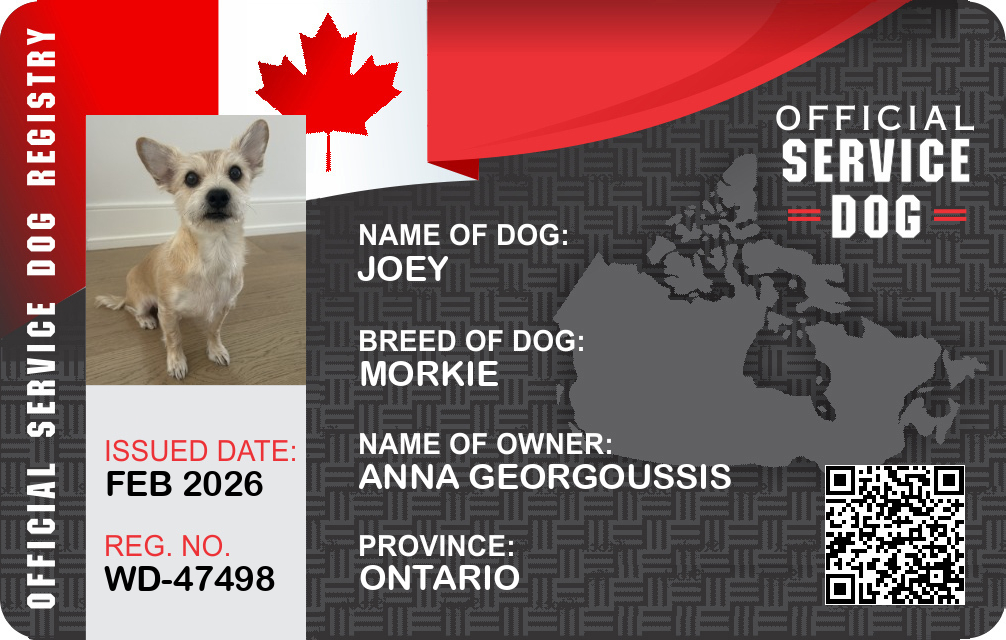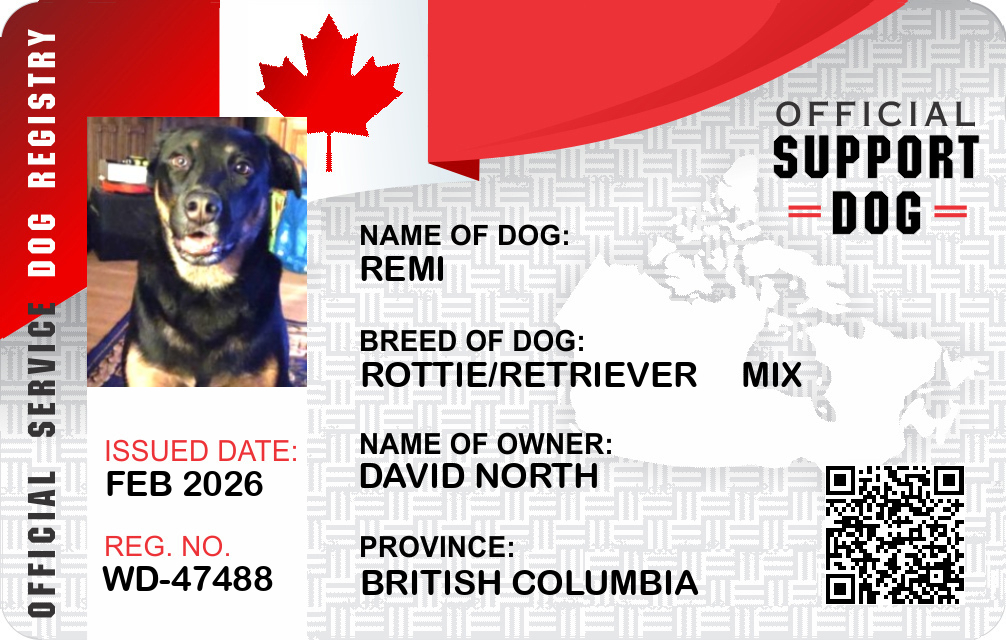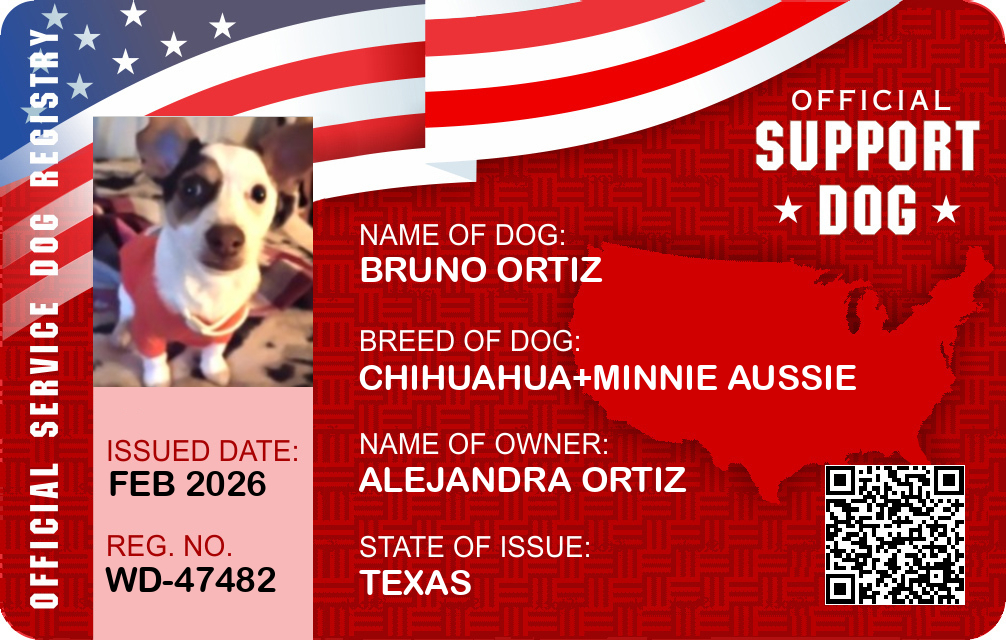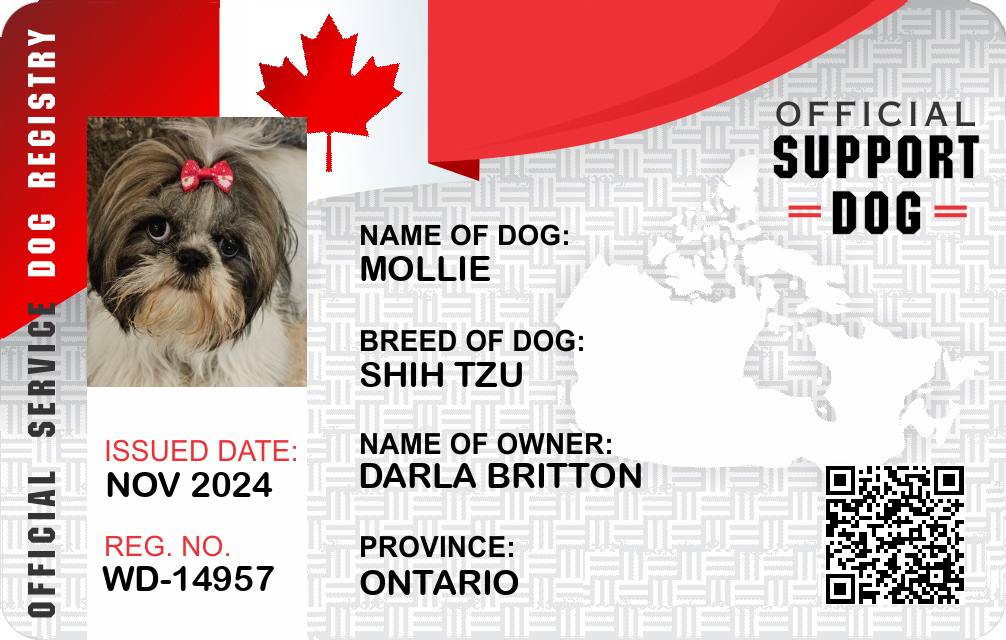Virginia Emotional Support Animal Laws
Get Your Documents
Example State Cards

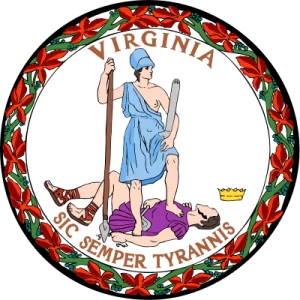
Overview of ESA and Legal Definitions in Virginia
What is an Emotional Support Animal?
An Emotional Support Animal (ESA) is any pet that provides comfort and emotional assistance to individuals with mental health conditions or emotional disorders. Unlike service animals, which are trained to perform specific tasks for individuals with disabilities, ESA require no specialized training. Their primary role is to offer emotional relief through companionship. In Virginia, as with the rest of the United States, ESA are recognized under federal law for their therapeutic benefit but not granted the same rights or access as service animals.
How ESA Differ from Service Animals
Service animals are specifically defined under the Americans with Disabilities Act (ADA) as dogs that are individually trained to do work or perform tasks for people with disabilities. Mainstream examples include guide dogs for the blind or dogs that alert individuals with hearing impairments. In contrast, ESA, which can include a broader range of animals, from dogs and cats to rabbits and birds, do not have the same training and are not covered by the ADA. In Virginia, while service animals are granted access to public places, ESA do not share this general right unless covered by specific laws such as housing rules under the Fair Housing Act.
Key Federal Laws Affecting ESA (e.g., FHA, ACAA)
Federal laws that impact ESA in Virginia include the Fair Housing Act (FHA) and the Air Carrier Access Act (ACAA). The FHA mandates reasonable accommodations for ESA in housing, allowing individuals to live with their support animals even in properties with no-pet policies, provided that the ESA does not pose a direct threat or cause significant damage. The ACAA, though, has seen recent amendments that specify airlines’ obligations to accommodate ESA; however, with changes effective since January 2021, airlines are no longer required to accommodate ESA, redefining rules around which support animals can travel.
State-Specific ESA Laws in Virginia
Housing Rights and Responsibilities
In Virginia, housing rights for ESA owners are primarily supported by the FHA rather than state-specific legislation. Landlords must accommodate ESA, but tenants are often required to provide verifiable documentation, typically in the form of an ESA letter from a licensed mental health professional. Virginia law aligns with federal mandates, ensuring that no additional state-based requirements override these housing rights. However, tenants have the responsibility to ensure their ESA are well-behaved and do not cause damage or disturbances within the property.
Public Access and Accommodation
Virginia, like most states, does not afford ESA the same level of access to public spaces as service animals. Restaurants, stores, and other public venues are not legally required to allow entry to ESA. Businesses may, at their discretion, choose to allow ESA, but this is not a legal obligation. Thus, ESA owners should be prepared to adhere to business policies and assure the establishment owners of their ESA’s good behavior as a courtesy rather than a right.
Transportation and Travel Rules
ESA regulations in the realm of travel have seen significant changes due to amendments under federal law. As of the most recent updates to the Air Carrier Access Act, airlines are not mandated to accommodate ESA. ESA now must be considered pets, which often means they must travel in carriers or meet the individual airline’s pet policies, which may include additional costs. Other forms of public transportation in Virginia, such as buses or trains, are also not compelled to allow ESA unless they are service animals.
Employment and Workplace Considerations
Under Virginia law, there is no obligation for employers to accommodate ESA in the workplace. The rights of ESA owners in employment contexts are notably limited compared to those of service animal owners. Employers may voluntarily allow ESA as a reasonable accommodation under the ADA’s guidelines, addressing the mental health needs of the employee. Employees seeking to bring ESA to work should engage in open discussions with their employers to negotiate such accommodations, if possible.
Documentation, Requirements, and Processes in Virginia
ESA Letters and Who Can Issue Them
An ESA letter serves as the official documentation confirming the need for an emotional support animal. In Virginia, this letter must be issued by a licensed mental health professional, such as a psychologist, psychiatrist, or licensed clinical social worker. The letter should be current and detail the provider’s recommendation for an ESA, linking it directly to the individual’s mental health condition. It is crucial for Virginians obtaining an ESA letter to work with practitioners who are licensed in the state.
Registration, Certifications, and Common Misconceptions
While many websites advertise registration and certification for ESA, these are not legally required nor are they recognized by law. In Virginia, an ESA’s legitimacy is established through an ESA letter rather than any form of certification or registration. The primary purpose of any document is to establish the necessity for the ESA related to the individual’s well-being, as per federal law, rather than any state-specific registry.
Landlord, Business, and Provider Verification Rules
In Virginia, landlords can request verification of an ESA through an appropriately issued ESA letter but cannot mandate specific types of certifications. This regulation is governed by FHA guidelines prohibiting discrimination based on a tenant’s necessity for an ESA. For businesses, verifying the need for an ESA is unnecessary unless voluntarily choosing to accommodate it. Practitioners, when asked to provide ESA documentation, should ensure the documentation remains compliant with privacy laws while adequately establishing an ESA’s necessity.
Rights, Limitations, and Legal Risks
Rights ESA Owners Have in Virginia
ESA owners in Virginia have specific housing rights supported by the FHA which forbid discrimination based on the need for an ESA. These rights allow owners to maintain ESA in otherwise pet-restricted housing without incurring additional pet fees. The rights primarily extend to housing and, to a very limited extent, potentially accommodating workplaces if agreed upon by both employee and employer.
Limits on ESA Protections and Common Restrictions
The protections for ESA do not extend into public access beyond housing accommodations. Thus, owners face common restrictions in public venues such as restaurants, malls, or public transportation systems. The updated transportation laws further curtail ESA’ presence on flights, placing them under standard pet policies unless otherwise stated by the transport agency’s own policies.
Penalties for Fraud or Misrepresentation
In Virginia, presenting an ESA as a service animal can result in legal repercussions. Misrepresentation, which involves falsely claiming a pet as a qualified service animal, is subject to penalties, potentially including fines or community service mandates. This underscores the importance of ESA owners maintaining clarity about their animal’s status and rights under relevant laws.
Practical Guidance for ESA Owners in Virginia
How to Talk to Landlords, Airlines, and Employers
Effective communication with landlords, airlines, and employers involves presenting a well-prepared ESA letter and engaging in open discussions about the specific accommodations the ESA provides. Ensuring clear understanding of federal housing laws, along with any voluntary transport policies, helps support requests. Employers, while not legally obliged to accommodate, can often approach such requests with empathy if presented constructively.
Summary of ESA Laws in Virginia
- ESA offer emotional support but are not covered by the ADA like service animals.
- Federal housing protections under the FHA allow ESA in pet-free housing.
- ESA are not granted access to public spaces like restaurants or shops in Virginia.
- Airlines follow current ACAA guidelines, treating ESA as pets unless stated.
- Legitimate ESA documentation is crucial; avoid services offering fake certifications.
- Engage landlords and employers with clear, factual discussions about ESA needs.
- Misrepresenting an ESA as a service animal can result in legal consequences.
This outline of Virginia ESA laws is intended to guide potential ESA owners and ensure compliance with both federal and state regulations, safeguarding the well-being and rights of individuals who rely on emotional support animals.
Get Your Documents
Example State Cards





